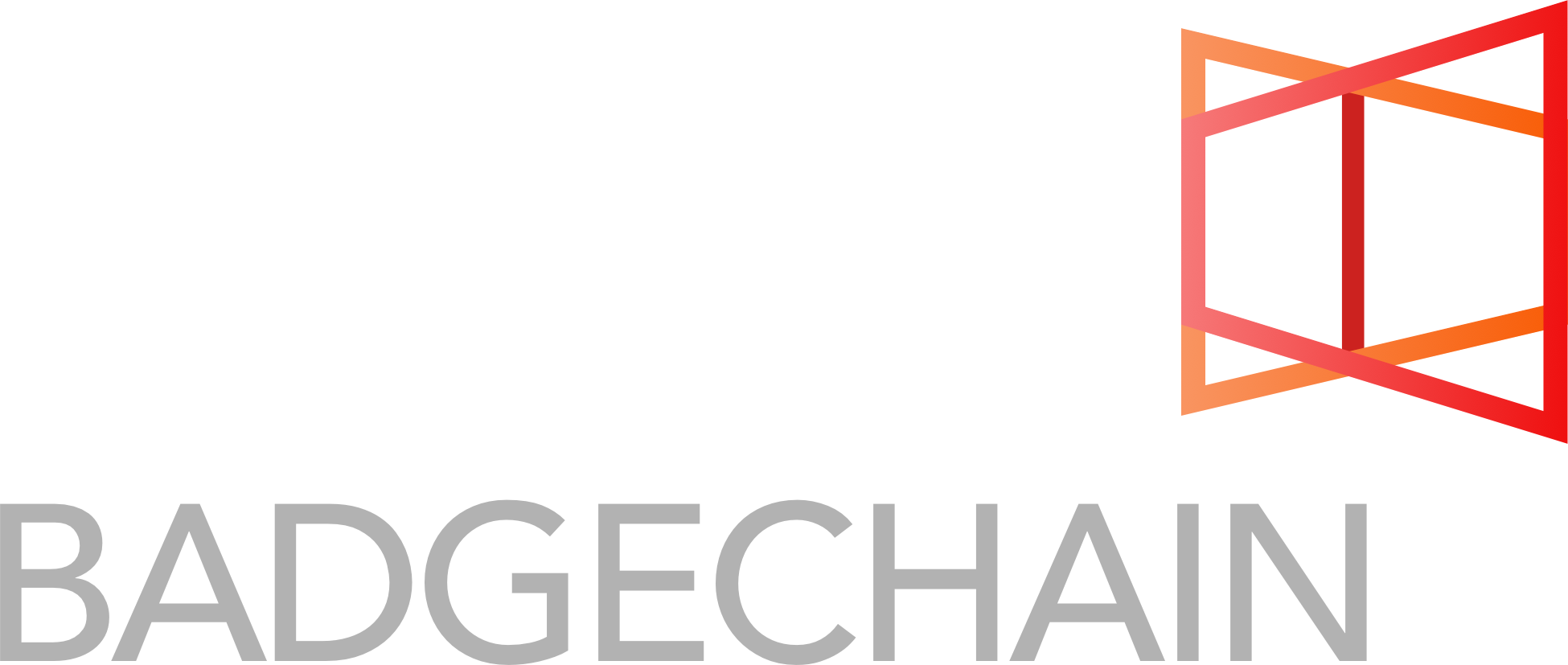BadgeChain began as an investigation into blockchain in the context of Open Badges, a new digital credential designed to acknowledge learning and achievements that happen anytime, anywhere, and anyhow. Open Badges embed metadata describing an accomplishment into an image (or badge), this construct results in easily consumable data and ultimately a truly portable credential. Badges can be microcredentials but also any type of credential including degrees and certifications.
Open Badges are hosted on web servers, and the verification method is reliant on the issuers storing the data for as long as the earners need it. But web servers can go down and the data stored could be modified without any historical reference. Two inherent qualities of blockchain technologies address this: permanence (at least for as long as there are nodes in the chain) and immutability (once a transaction is on the chain, it can’t be changed).
This week we caught up with two initiatives that embrace the ethos of Open Badges and seek to improve upon data verifiability using blockchain technologies: Blockcerts and OpenBlockchain.
Blockcerts is “an open standard for building apps that issue and verify blockchain-based official records” including academic credentials and professional licenses with data aligning to the Open Badges specification. Blockcert’s open source libraries, tools, and mobile apps were initially developed by MIT’s Media Lab and Learning Machine and they are encouraging community involvement through their community forum and GitHub repo.
A recent example of Blockcerts in action is MIT’s Digital Diploma which makes it possible for students to share their verifiable and tamper-proof diploma digitally. Some other examples coming out of Learning Machine include the Federation of State Medical Boards which is using Blockcerts to verify medical qualifications, and the Republic of Malta aimed at workforce training credentials.
OpenBlockchain is an initiative of the Knowledge Media Institute (KMI) at The Open University in the UK. KMI’s experiments are primarily aimed at higher education institutions in the UK, but they are also working on projects concerning workforce training, peer-to-peer interactions, and the funding of education through blockchain. They are taking a unique approach to Open Badges by experimenting with ways to store and issue them using ethereum. Ethereum, originally built based on the Bitcoin blockchain, is also decentralized, meaning that distribution is amongst many nodes, but instead of just storing transactions, the nodes also host and run small apps (called DApps) which rely on logic and data stored in smart contracts.
One of OpenBlockchain’s first experiments converted Open Badges earned on the OpenLearn platform into smart contracts that display the information about the credential on blockchain. The evidence and feedback provided in each achievement are also stored on blockchain. They envision a UK-wide blockchain where all students’ credentials are stored so as to facilitate credit transfer and allow potential employers to view student work. Currently, the KMI team is working on a Moodle plugin that will issue Moodle Badges to smart contracts. A video demonstrating this as well as other informational videos about their work may be found here: https://blockchain.open.ac.uk/#demos.

Follow Us